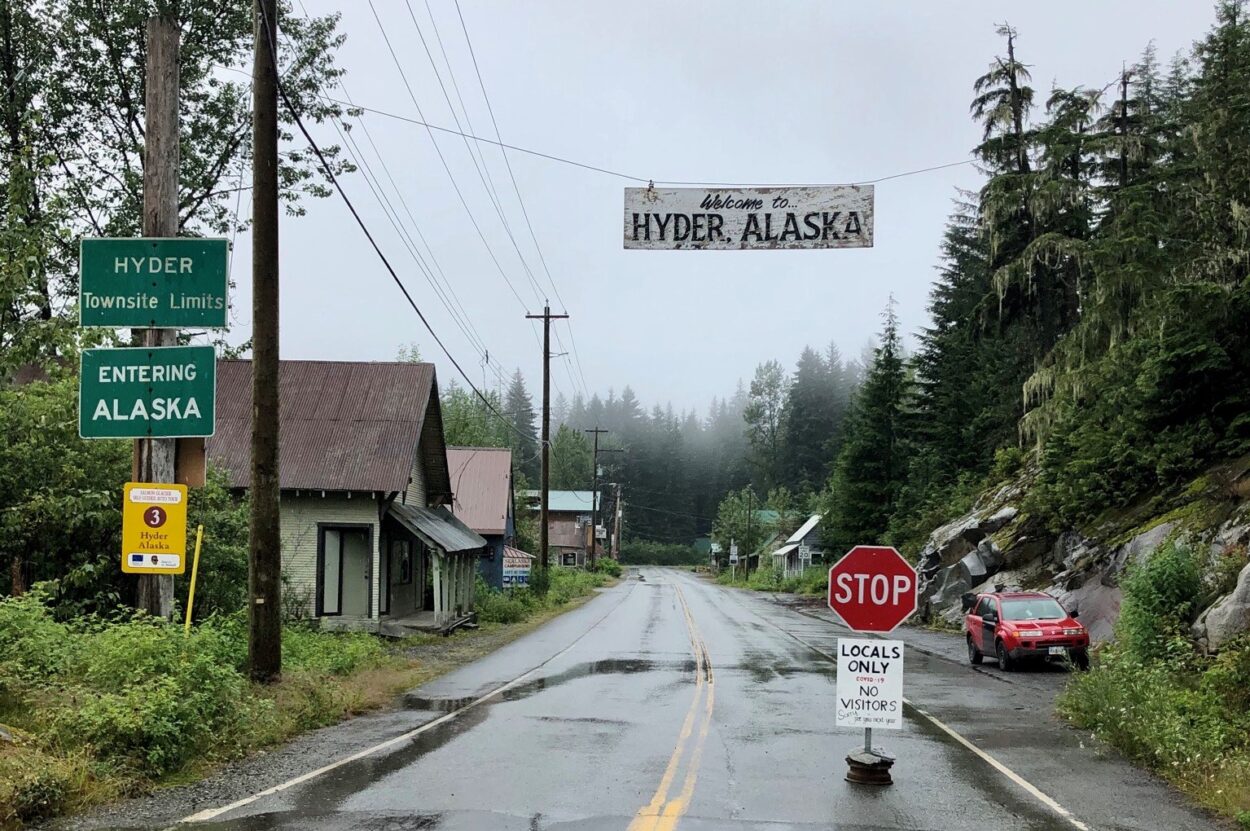
There is no U.S. customs presence at the entrance to Hyder, Alaska as seen in this August 4, 2020 photo. (Photo by Jennifer Bunn/Hyder AK & Stewart BC COVID-19 Action Committee).
Canada has relaxed border restrictions for residents in Hyder. The Southeast Alaska town’s only road out runs through British Columbia.
Since March, the tiny town’s 60-odd residents have been chafing under COVID-19 travel restrictions that have left them largely cut off from their Canadian neighbors.
But on October 30 the Canadian government announced a number of exceptions to strict 14-day quarantine rules for a number of border towns, including Hyder which is separated from the rest of Alaska by mountain peaks and open water.
“There is a lot more freedom of movement across the border, but it is not completely open for locals to go back and forth,” said Jennifer Jean, a Hyder resident and co-chair of the Hyder, Alaska and Stewart, B.C. COVID-19 Action Committee. It’s spearheading the effort to reopen the border and attracted support from elected officials on both sides of the border.
She says crossings will be limited for “necessities” like groceries, fuel, firewood or helping out family members in need.
Recreation and socializing doesn’t qualify.
“We were really looking forward to just the freedom of movement back and forth and open border like we used to enjoy before COVID,” she said on Monday. “But the reality is, we are living in a pandemic, and the concessions that have been put in place have allowed the freedom of movement that is necessary.”
But Hyder’s handful of school-aged children should be able to attend classes in Canada. Their Alaska school closed this year due to low enrollment and they’d planned to enroll in neighboring Stewart, BC. The quarantine rule blocked that just days before the opening of the fall semester.
The new rules give permission to Hyder’s students to cross the border to attend class in Canada, provided they obtain permission from local authorities.






